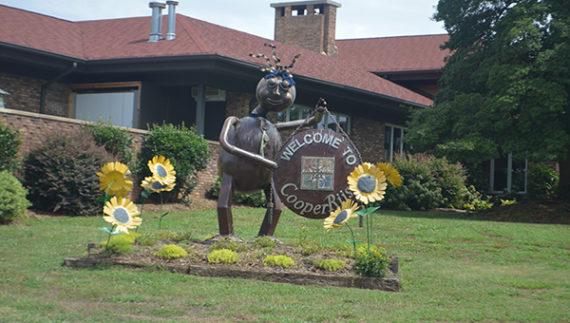
(3-14-21) In a recent blog questioning whether states need to build new psychiatric hospitals, I mentioned CooperRiis and Gould Farm as examples of long-term residential facilities that offer compassionate care. Virgil Stucker, the nation’s leading authority on healing communities, responded with this guest blog.
Consider the Concept of a Mental Health Recovery College
By Virgil Stucker
Pete, thank you for your thoughtful blog about the chasm in the care continuum between inpatient hospital acute care and community-based care. As you can imagine, I share your concerns.
Society’s long-term care and treatment options for individuals with complex and persistent mental illnesses have too often been the streets, jail or the homes of aging parents. About 8.4 million mentally ill adults, with an average age of 45, appear to be living in various states of chronicity with varying levels of parental support and modest Social Security Administration funding.
Some of these individuals may benefit from a local PACT (assertive community treatment) programs, which are designed to keep them out of a hospital and to provide access to some level of case and medication management. Some may be in a group home; some of these homes are good, but many are like small warehouses that are more isolating than state hospitals used to be. Many could have benefited had they had the opportunity to experience a robust mental health recovery program, the best of which offer multi-stage treatment options and actually help their residents obtain training, employment and independent living.
A Chasm Of Care Opens
Most mental health treatment is focused on emergent or urgent care followed by the notion that the next level of care is community-based. On discharge from a hospital with a prescription for medication the patient may have an appointment with a community mental health professional in a few weeks but little else. A chasm opens. Too frequently, this approach results in repeated hospitalizations and a state of chronicity sets in.
What happened to the mental health recovery model?
Instead of prematurely giving in to chronicity and hopelessness, our mental health systems should help each person achieve and sustain their highest levels of functioning, fulfillment and independence. The hope for individual mental health recovery is realistic, but it generally requires more support post-hospital than is provided by minimal community-based services.
Options exist. Forty-six years ago I began working at Gould Farm in MA, after first working in a psychiatric hospital. What joy I experienced as I observed the process of recovery occurring at Gould Farm with residents who had come directly from hospital stays. Participation in its therapeutic community gave individuals a sense of belonging, purpose and resilience, gained from the Farm’s experiential activities and clinical support.
My wife and I found our mission; we as a family helped in the founding of similar places: Gateway Homes in VA, Rose Hill Center in MI, and CooperRiis in NC. I was the first executive director each; each is still a thriving nonprofit organization. Our youngest daughter Stephanie McMahon and her family now also live and work at Gould Farm, living in the same home in which my parents lived when they were volunteer staff at the Farm. As an extended family, we have accompanied a few thousand people on their recovery journeys.
A Healing Place
Each of these therapeutic communities is like a Mental Health Recovery College – take a moment to ponder that concept.
We all know the value of college. It’s the liminal experience we have as we transition from adolescence into adulthood. It provides academic and life education. These therapeutic communities can provide a similar liminal (betwixt and between) experience for people with serious mental illness. Serious mental illness is complex and an investment in a well-rounded, intensive college-like experience can teach individuals the recovery skills that they need to thrive as best they can.
While it is relatively costly to operate these nonprofit ‘recovery colleges’ because of their level of staffing and investment in buildings, etc., most have robust scholarships and are increasingly paid for by medical insurance. Once the IMD exclusion is repealed, public funding should also increase access for families who need more financial assistance. Ultimately, I wish we could even incorporate the programming of these ‘colleges’ into our local community colleges, perhaps aligning residential support with them.
My career has focused on building these therapeutic communities. Research has shown that they can work. More are needed. A few decades ago, I was also involved in the early stages of forming ARTAusa.org which is an association of over 30 ‘recovery college-like’ programs.
What we are advocating is not a throw-back to mammoth state hospitals or asylums. Nor am I advocating that these ‘recovery colleges’ are for everyone. They are, however, options for many who could have avoided a life of chronic mental illness if they used them to develop their recovery skills. Public policy should support the creation and operation of more of these types of programs throughout the country. They are a good investment and motivated individuals with mental illness deserve to have access to them.
ABOUT THE AUTHOR:  Virgil Stucker, Founder and President of Virgil Stucker and Associates LLC, was President Emeritus of the CooperRiis Healing Community in 2017 after serving as founding Executive Director from 2003. His therapeutic consultation practice is his way of continuing to improve mental health care, his career-long mission. He and his wife Lis have integrated their lives with therapeutic communities since they met in 1975 at Gould Farm; his leadership roles there included being founding Program Director of Gould Farm’s Boston Program. Next, he was the founding Executive Director of two other therapeutic communities; Rose Hill Center in Michigan and Gateway Homes in Virginia. (He has also enjoyed informal associations with Spring Lake Ranch in Vermont and Hopewell Community in Ohio throughout his career. Virgil and his daughter, Stephanie McMahon are the authors of A Family Guide To Mental Health Recovery: What You Need To Know from Day One. Their company also has a popular podcast. You can email Virgil at virgil@virgilstuckerandassociates.com
Virgil Stucker, Founder and President of Virgil Stucker and Associates LLC, was President Emeritus of the CooperRiis Healing Community in 2017 after serving as founding Executive Director from 2003. His therapeutic consultation practice is his way of continuing to improve mental health care, his career-long mission. He and his wife Lis have integrated their lives with therapeutic communities since they met in 1975 at Gould Farm; his leadership roles there included being founding Program Director of Gould Farm’s Boston Program. Next, he was the founding Executive Director of two other therapeutic communities; Rose Hill Center in Michigan and Gateway Homes in Virginia. (He has also enjoyed informal associations with Spring Lake Ranch in Vermont and Hopewell Community in Ohio throughout his career. Virgil and his daughter, Stephanie McMahon are the authors of A Family Guide To Mental Health Recovery: What You Need To Know from Day One. Their company also has a popular podcast. You can email Virgil at virgil@virgilstuckerandassociates.com



